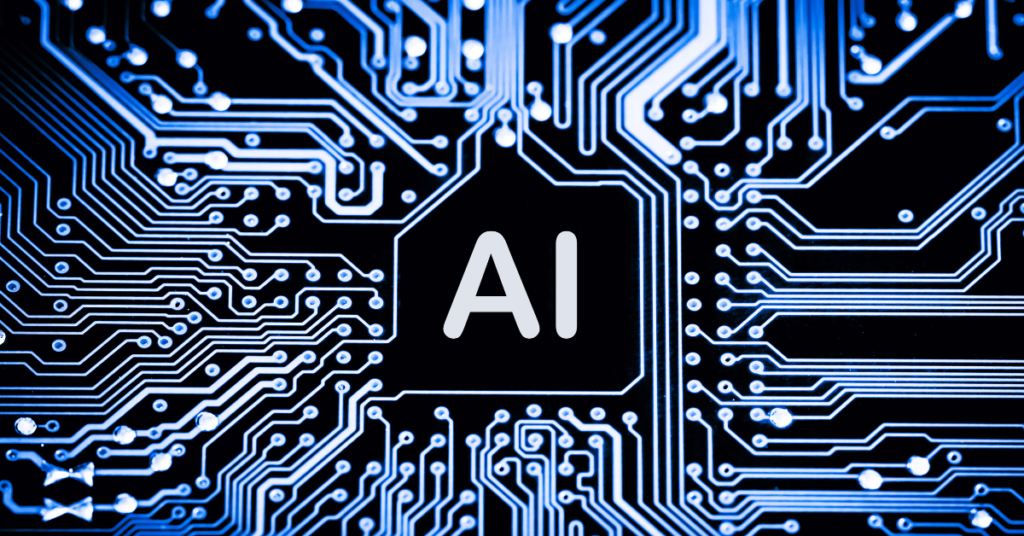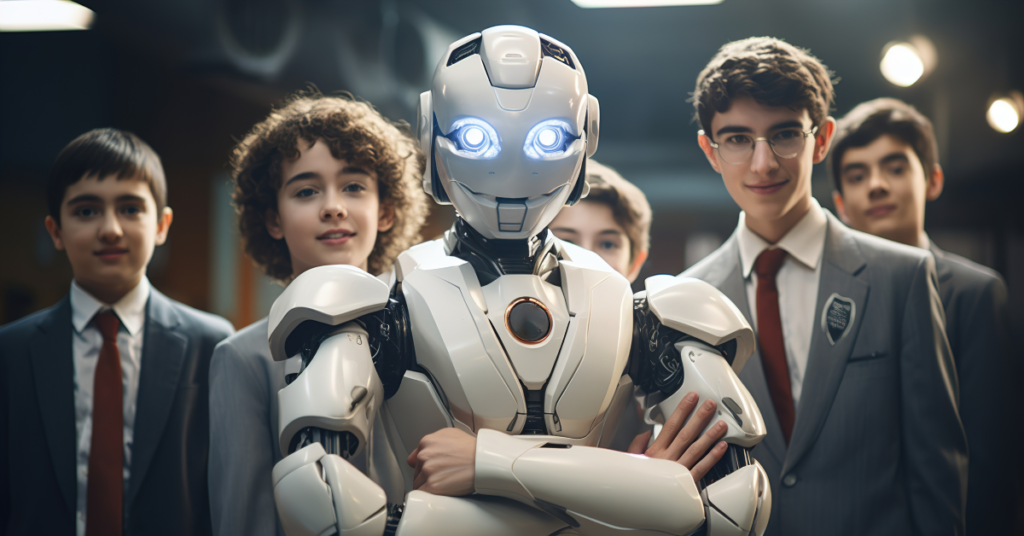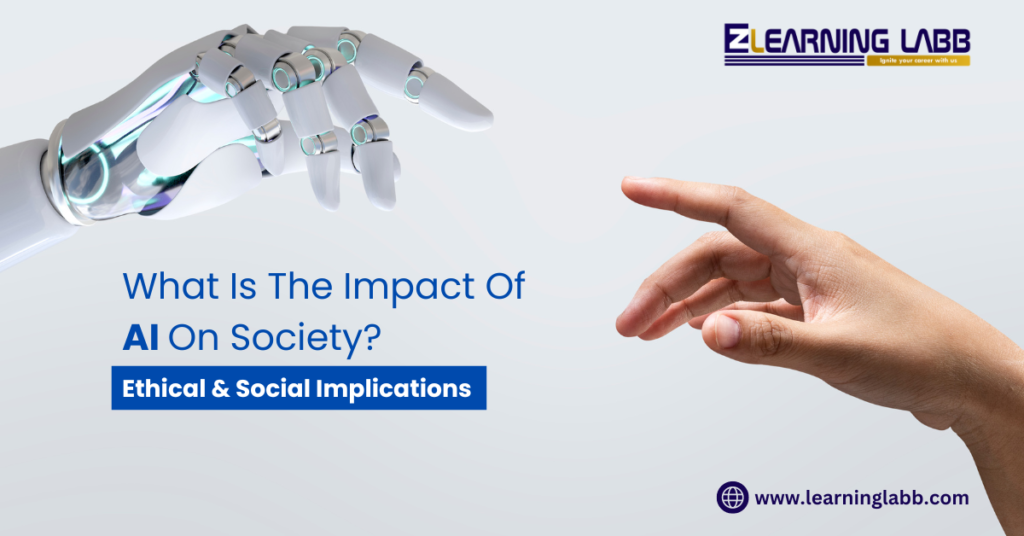What Is The Impact Of AI On Society: From healthcare to entertainment, AI is embedded in various aspects of our lives, often making tasks easier and more efficient. But what is the impact of AI on society? How far and strong has artificial intelligence laid its root into our lives?
This article contains the following:
- What Is The Impact Of AI On Society?
- What Are The Ethical Implications Of AI?
- Social Implications Of AI
What Is The Impact Of AI On Society?
Artificial intelligence, with its power to revolutionize the numerous sectors of the society has definitely integrated it into all aspects of our life. Let’s glance: in healthcare, AI can diagnose diseases faster and more accurately than doctors. In the automotive industry, self-driving cars promise to reduce accidents and make travel more efficient. Education is being transformed through personalized learning experiences powered by artificial intelligence.
And that’s not all, even in our daily lives, AI assistants like Siri and Alexa help manage our schedules and answer questions making our lives so much easier, right?
However, the impact of AI on society isn’t all that positive. There are concerns about job displacement as machines and algorithms replace human workers in various industries. The economy is affected as traditional jobs become obsolete and new types of employment emerge, requiring different skills and knowledge. Moreover, AI can sometimes make mistakes or produce biased outcomes, leading to unfair consequences.
Before we get into the social implications of AI and learn what are the ethical implications of AI, let us tell you all about the real-life AI accidents as well as some incidents where AI saved the day!
4 Times AI Saved The Day!
1. Prevention mechanisms
Facebook, recognizing the time users spend sharing personal updates, has launched an AI-driven tool to detect suicidal thoughts in status updates to help prevent suicides.
2. Accessibility
AI is revolutionizing accessibility for people with disabilities. An innovative app uses neural networks to translate sign language into text, providing a vital communication tool for those with hearing impairments.
3. Sustainability
AI is proving to be a powerful ally in environmental protection. Microsoft’s AI for Earth program supports innovative AI applications to tackle global environmental challenges, benefiting researchers like Columbia’s ecology professor Maria Uriarte.
4. AI Saves Woman’s Life
Reports reveal that IBM’s artificial intelligence (AI) system, Watson, has saved the life of a Japanese woman by accurately diagnosing her disease. Despite conventional methods failing to detect her illness and leaving doctors stumped, the AI identified the condition in just 10 minutes.

5 Famous AI Accidents
1. Air Canada Pays Damages for Chatbot Error
In February 2024, Air Canada was ordered to compensate Jake Moffatt after its virtual assistant misinformed him about bereavement fares. Following the chatbot’s advice after his grandmother’s death in November 2023, Moffatt bought tickets totaling CA$1,640.36, only to discover the information was incorrect.
2. ChatGPT Invents Court Cases
Attorney Schwartz, from Levidow, Levidow & Oberman, used ChatGPT to find supporting cases for a lawsuit involving Avianca employee Roberto Mata. The AI-generated brief included at least six nonexistent cases.
3. Microsoft Chatbot’s Racist Tweets
In March 2016, Microsoft’s Twitter-trained chatbot posted over 95,000 tweets in 16 hours, quickly becoming overtly racist, misogynist, and anti-Semitic. The service was promptly suspended and later discontinued.
4. Amazon’s Biased Recruitment AI
Amazon’s AI recruiting tool, developed in 2014, showed a strong bias towards male candidates. The project was scrapped in 2018 after Reuters revealed the flaw.
What Are The Ethical Implications Of AI?
When discussing what are the ethical implications of AI, several critical issues arise. Firstly, there’s the matter of bias. AI systems often operate on large datasets, which can include personal information. This raises concerns about privacy and data security. How can we ensure that AI respects our privacy rights?
- Bias and fairness: AI systems can inherit biases from training data, leading to discriminatory outcomes in areas like hiring, lending, and law enforcement.
- Privacy: AI’s ability to process vast amounts of data raises concerns about privacy breaches and surveillance, impacting individuals’ autonomy and rights.
- Accountability: Determining accountability is challenging when AI systems make decisions or recommendations, especially in critical areas like healthcare and criminal justice.
- Transparency: Lack of transparency in AI algorithms and decision-making processes can undermine trust and accountability, making it difficult to understand how decisions are reached.
- Job displacement: Automation driven by AI may lead to job losses or shifts, necessitating retraining and potential economic disparities.
- Security: Vulnerabilities in AI systems can be exploited, leading to malicious use or unintended consequences that compromise safety and security.
- Autonomy and control: AI’s increasing autonomy raises questions about who controls its development, deployment, and decision-making processes.
- Impact on society: Changes brought by AI, such as in social interactions, economics, and governance, can have profound societal impacts that need careful consideration.
- Global governance: The global nature of AI development necessitates international cooperation to address ethical concerns and ensure responsible use worldwide.
- Long-term implications: Anticipating and mitigating potential long-term effects of AI on society, economy, and governance require proactive ethical frameworks and policies.

What Are The Social Implications Of AI?
The social implications of AI are plenty – plenty with a capital P! The social implications of AI encompass various aspects that can both positively and negatively impact society:
- Job displacement and economic shifts: Automation of tasks may lead to job losses in certain sectors. New job opportunities may arise in AI-related fields, requiring different skill sets.
- Ethical concerns and biases: AI algorithms can inherit biases from data, leading to unfair or discriminatory outcomes. Ethical guidelines are needed to ensure AI systems operate responsibly and transparently.
- Privacy and security risks: AI systems can collect and analyze vast amounts of personal data, raising concerns about privacy breaches. Safeguards are necessary to protect individuals’ data from misuse and unauthorized access.
- Inequality and access to AI technologies: Unequal access to AI technologies can widen the digital divide. Ensuring equitable distribution and affordability of AI tools is crucial for societal inclusivity.
- Impact on healthcare and education: AI has the potential to improve healthcare outcomes through more accurate diagnostics and personalized treatments. AI-powered educational tools can enhance learning experiences but may also raise concerns about dependence on technology.
- Changes in human interaction and behavior: Increased reliance on AI assistants and chatbots may alter interpersonal communication patterns. Social norms and behaviors could evolve as AI becomes more integrated into daily life.
- Regulation and governance challenges: Developing policies and regulations that keep pace with rapid advancements in AI technology is challenging but essential. International cooperation is needed to address global AI-related issues and standardize ethical practices.
- Impact on creativity and intellectual property: AI-generated content raises questions about ownership and copyright. Balancing innovation with legal frameworks that protect intellectual property rights is crucial.
- Trust and acceptance: Building trust in AI systems among the public is essential for widespread adoption. Transparent communication about AI capabilities, limitations, and potential risks is necessary to foster acceptance.

So, What Is The Impact Of AI On Society?
Well well – it is a mixed bag. AI offers incredible benefits, from improved healthcare to more efficient transportation. However, it also brings significant challenges, particularly regarding ethics and social implications. As we continue to integrate AI into our lives it is important to address these issues thoughtfully.
Why? Then it enables us to harness the power of AI for good while reducing its potential downsides.
To learn more and be an expert, VISIT US!





